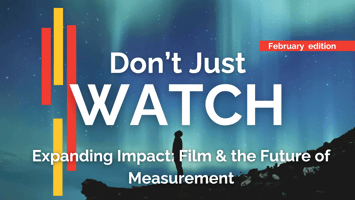When the NFL tapped Bad Bunny to front its Super Bowl campaign, it wasn’t chasing “wokeness” or Gen Z validation. It was making a smart, data-driven business move.
The Puerto Rican megastar commands one of the most loyal and globally engaged fanbases on the planet. For the NFL, that translated into something every executive understands: new audiences, new sponsors, and new revenue streams. It wasn’t a political statement; it was a market expansion strategy.
From Moral Stance to Market Logic
As The New York Times’ Molly Jong-Fast recently noted, the NFL’s Bad Bunny play was about profit, not politics—and she’s right. What’s fascinating is how this mirrors a much larger shift in business strategy.
After the 2024 election, many feared the “purpose economy” would fade the way “woke” did. Instead, the opposite happened. From the NFL’s marketing department to +Media’s own 2025 surge, purpose has gone pragmatic. Sustainability, social impact, and inclusion are growth levers instead of moral imperatives.
The numbers speak volumes:
- 63% of consumers prefer to buy from companies that reflect their values, according to the Edelman Trust Barometer.
- 70% of CEOs believe they must speak out on social issues.
- 86% of millennials and Gen Z consider purpose essential to workplace satisfaction, with half rejecting work with a negative social or environmental impact.
Sustainability now plays the same role for brands that Bad Bunny plays for the NFL; it opens doors to new demographics, deeper loyalty, and measurable return on investment.
Good for the Planet, Better for Business
Sustainability is a profitability strategy. It reduces costs, mitigates risk, and strengthens brand equity. It also acts as narrative insurance in a volatile culture where reputational missteps can erase years of brand equity overnight.
Companies that plan for the future build trust and resilience in the present. That’s not idealism. That’s sound accounting.
A New Playbook for Leadership
Modern CEOs know they need to stand for something, and they’re defining how to integrate purpose into the business model.
Just as the NFL used Bad Bunny to expand its audience, companies are using sustainability to future-proof their relevance. When a brand touts its carbon-neutral sneakers or regenerative coffee, it’s not virtue signaling—it’s survival signaling.
But the message must be authentic and consistent. Consider Target’s experience. When the retailer scaled back its Diversity, Equity, and Inclusion commitments, reducing DEI roles and cutting initiatives, it faced heavy backlash from its customer base.
The result? Sales dropped 2% in Q2 2025 alone, and the company’s stock value plunged 23% between January and August 2025. The lesson: backpedaling on purpose can be just as costly as taking a stand.
In a world where stakeholders expect clarity, silence is riskier than action.
The Bottom Line
The future of business isn’t about choosing between doing good and doing well. It’s about doing well because you do good.
Consumers reward it. Investors expect it. Employees demand it. And the most forward-thinking leaders are already turning values into value.
So, thank you, Bad Bunny for reminding us that sustainability, like culture, isn’t charity.
It’s strategy.
.png?width=100&height=100&name=Untitled%20design%20(61).png)

